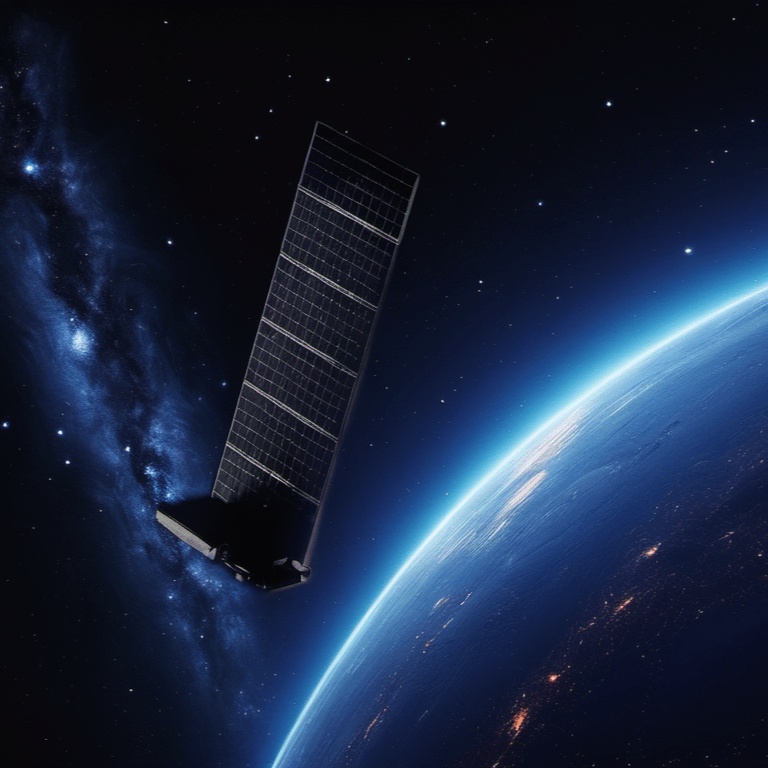· deep dive · 4 min read
Exploring SpaceX's Ownership and Future
A look into SpaceX's journey, ownership structure, and the leadership of Elon Musk. Discover how this private space venture has revolutionized the industry and its potential trajectory into the future.

The Beginning of SpaceX
In 2002, SpaceX was born from Elon Musk’s deep passion for space exploration. He invested $100 million from his earnings from the PayPal sale, dreaming of transforming space travel. Musk, who is also known for Tesla, holds SpaceX especially close to his heart. As CEO and CTO, he plays a key role in steering its technological development, aiming to make life on Mars possible with affordable rocket travel. Two decades later, Musk still has a significant influence as the primary owner.
Ownership of SpaceX is shared among Musk, the company’s early team members, and various institutional investors who have funded it over the years.
Current Ownership of SpaceX
Elon Musk is the dominant shareholder in SpaceX, owning about 54% of the equity and controlling 78% of the voting rights. This majority stake allows him to make major decisions independently.
Significant shares are also held by Alphabet, the parent company of Google, which owns approximately 7.5% due to its hefty investments. Other notable stakeholders include venture capital firms like Sequoia Capital, Valor Equity Partners, Baillie Gifford, and Fidelity, all of whom have invested during various funding rounds.
Some SpaceX executives and engineers also have equity, a common practice in private tech startups. Musk’s majority ownership ensures he is not heavily influenced by external investors or quarterly shareholder demands.
The rest of SpaceX’s shares are likely held by numerous private individual investors, although it’s not accessible for general public investment at this stage.
SpaceX’s Funding and Investor Interest
SpaceX has amassed $7.2 billion in equity funding and investments over 40 rounds, not counting billions from government contracts. The company’s valuation fluctuates between $127 billion and $150 billion, reflecting strong investor interest. Although all private, due to Musk’s preference, some spin-offs, like Starlink, may become publicly traded in the coming years.
The company’s soaring valuation is driven by its pioneering reusability technology and remarkable achievements, attracting backers who see potential in the commercial space sector despite the high initial R&D costs.
Will SpaceX Go Public?
Despite heavy investor interest, Musk has no immediate plans for an initial public offering (IPO). Keeping SpaceX private allows Musk to focus on his long-term vision of human multiplanetary existence without the pressure of short-term profits.
However, financial analysts speculate that parts of SpaceX, especially profitable ventures like the Starlink global satellite internet service, could eventually spin off into public companies.
The Power of Majority Ownership
SpaceX, with a valuation that rivals major public corporations, remains a private entity under Elon Musk’s guidance. His vision, leadership, and majority control have been crucial in shaping SpaceX’s direction. The future of SpaceX is primarily driven by Musk’s vision and ambition, much like in its early days.
Frequently Asked Questions
Who Owns SpaceX? SpaceX is primarily owned by its founder and CEO Elon Musk, holding about 50% of the company. The rest is owned by various institutional investors, including Alphabet and venture capital firms like Founders Fund and Draper Fisher Juvertson.
How Much is SpaceX Worth? SpaceX’s valuation ranges from $74 billion to over $100 billion. Innovations in space technology and operational achievements contribute to this high valuation.
When Might SpaceX Go Public? SpaceX plans to stay private for now, but its Starlink division might go public in the next 3-4 years.
Is There a Way to Invest in SpaceX Now? Direct investment in SpaceX isn’t available to the public. However, investing in Alphabet, which owns a stake in SpaceX, is an indirect option.
What is SpaceX’s main goal as a company? SpaceX’s main goal is to lower space travel costs, enable Mars colonization, and develop fully reusable launch vehicles and spacecraft.
How does SpaceX make money? SpaceX earns revenue through commercial launch services, NASA missions, Starlink internet subscriptions, and government contracts.
Is SpaceX profitable? SpaceX is profitable, generating strong revenues from its services while investing heavily in R&D. As a private company, it doesn’t publicly disclose detailed financials.



